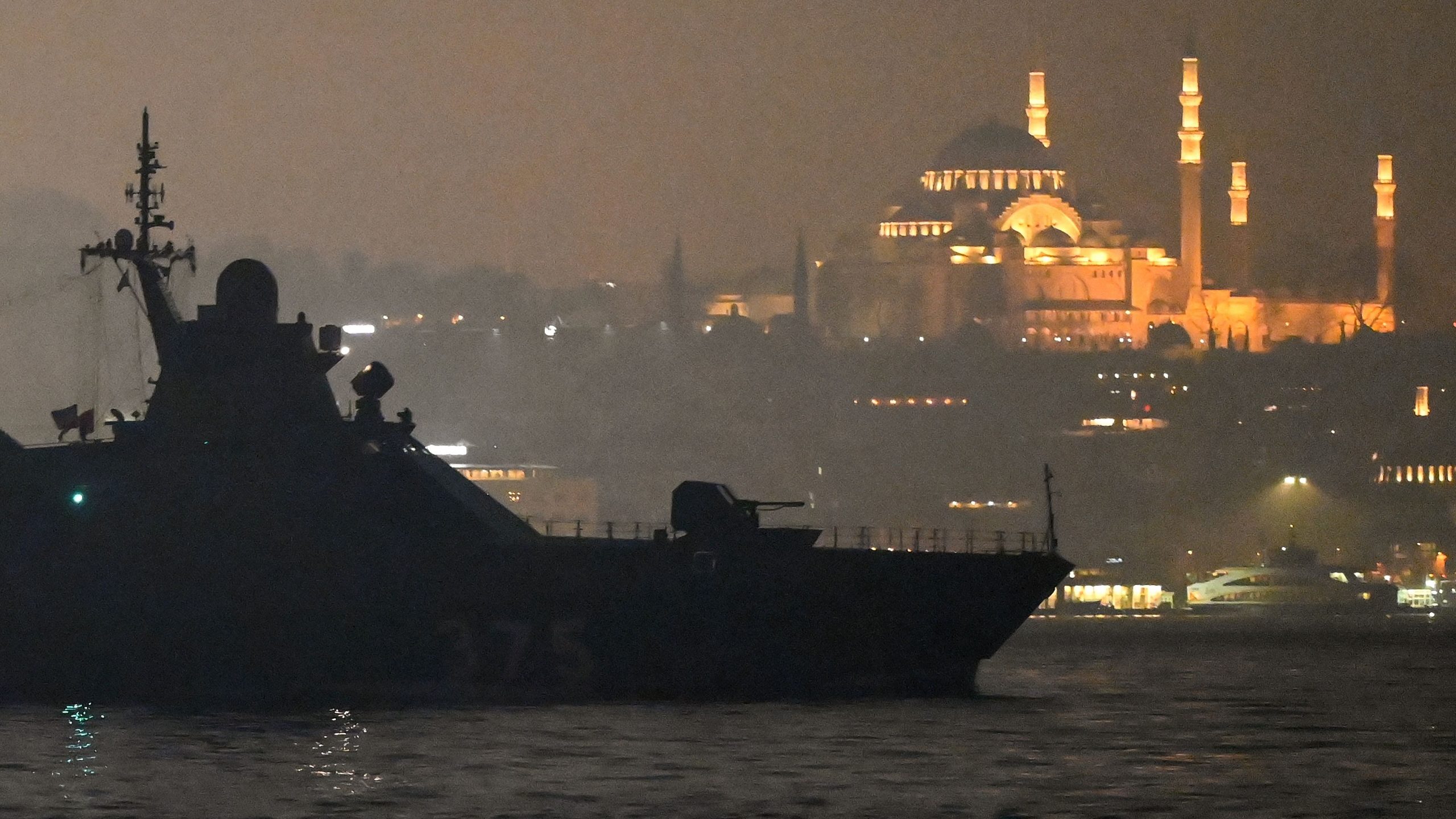Ankara Closes Bosporus, Dardanelles to Warships
Turkey a loser from the war between Russia and Ukraine, analysts say
Turkey’s announcement Monday it has implemented a convention that bars most warships from passing between the Black and Mediterranean seas is mostly a symbolic gesture, analysts tell The Media Line.
Under the Montreux Convention of 1936, during wartime, vessels such as those of the Russian Black Sea Fleet are still able to sail from the Mediterranean to their home bases through the Dardanelles and Bosporus – the straits connecting the Aegean Sea, an arm of the Mediterranean, to the Sea of Marmara and on to the Black Sea.
However, once they arrive at their home bases, the warships cannot go back.
“They’re applying it in the most neutral way possible,” said Aaron Stein, research director for the Philadelphia-based Foreign Policy Research Institute.
Stein said it was understandable that Turkey was being cautious, but it was clear it had a different position from the United States and the European Union.
Ankara referred to Russia’s invasion of Ukraine as a “war” on Sunday, meaning the convention could be implemented.
Turkey applied it during World War II, preventing the Axis powers from sending naval forces through the straits to attack the Soviet Union.
The Russian military has helped to prop up Syrian dictator Bashar Assad, whom Turkey opposes. Moscow’s intervention in the Syrian civil war has led to Turkish fatalities. Russia could place significant further pressure on President Recep Tayyip Erdoğan by attacking the rebel-held northern Idlib region of Syria, which borders Turkey.
Syrians fleeing such an attack would exacerbate the already severe refugee crisis in Turkey, putting additional strain on the country’s struggling economy and on Erdoğan, who has faced domestic pressure from tensions between locals and refugees.
Russian President Vladimir Putin put his nuclear forces on alert last week and warned that any country that interferes with Russia or harms it will face consequences it has not seen before. He was widely seen as threatening a nuclear strike.
Stein said he did not believe invoking the convention rose to that level.
Turkey is in a difficult position, trying to balance the expectations of the US and its fellow NATO member states and its interests and ambitions with its historical rival Russia, which provides much of the Anatolian nation’s energy and foreign tourists.
US Secretary of State Antony Blinken said he had spoken with Turkish Foreign Minister Mevlüt Çavuşoğlu on Monday and the US would continue to coordinate with Ankara on Ukraine’s sovereignty.
Çavuşoğlu said both men agreed on the need for a cease-fire.
Erdoğan has also moved closer to Putin in what analysts see as an attempt by Ankara to become more independent of Western allies.
“It’s significant that Turkey is taking a side but is doing so with a light touch,” Ryan Bohl, a Middle East and North Africa analyst with RANE/Stratfor, told The Media Line.
Ankara’s move shows it is leaning more toward Ukraine and the West in the crisis, Bohl said.
At first, Turkey tried to maintain a more neutral stance. It has offered to mediate between the warring sides; Ukrainian President Volodymyr Zelenskyy was receptive, but Putin has not accepted the suggestion.
Bohl believes it was the scale of Russia’s attack that impelled Ankara to come more forcefully against it.
He adds that Washington and the US sanctions will pressure Turkey to cut economic ties with Russia, but that Ankara will push for substitutes to address its various financial interests, including new sources of energy and tourism.
“This [the Turks’ modified position] would have been a huge deal if they had done it pre-invasion, but now it’s a symbolic ‘We are not in favor of war’ stance. It doesn’t really change many facts on the ground,” Bohl said. “They will focus on diplomacy, not to punish Russia but simply to end the fighting.”
He added that Russia’s ships are already in a position to support the invasion and he does not expect Moscow to punish Turkey in the immediate future.
Nevertheless, “it’s very possible that some sort of provocation from either side will cause some sort of split to emerge in some sort of really meaningful way,” Bohl said.


